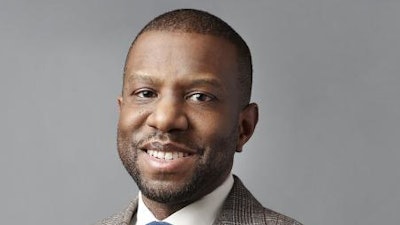The Legacy of Brown v. Board of Education
In the tapestry of American history, the threads of courage and resilience are woven by extraordinary individuals. This article features three such individuals: Joan Anderson, Cheryl Brown Henderson, and John Stokes. Each person has a unique story to tell about their experiences with segregation and their fight for educational justice.
- Joan Anderson was one of the nine children whose families challenged segregation in Delaware. She recounts her experience growing up in a community where both Black and white families worked together to achieve integration.
- Cheryl Brown Henderson is the daughter of Oliver Brown, one of the plaintiffs in the landmark Brown v. Board of Education case. She shares her perspective on the challenges and triumphs of desegregation, as well as the ongoing fight for educational equity.
- John Stokes grew up in Prince Edward County, Virginia, where schools were closed for five years rather than integrate. He describes his participation in the student strike that helped to bring about change.
Through their interviews, we gain a deeper understanding of the history of educational segregation and the ongoing struggle for equal opportunity. Their stories serve as an inspiration to all who are committed to creating a more just and equitable society.
 Dr. Ivory A. Toldson
Dr. Ivory A. Toldson
Seventy years ago, a seismic shift redefined the American landscape. Brown v. Board of Education shattered the edifice of segregation, promising a brighter future for generations to come. Today, as we stand on the shoulders of those brave souls who dared to dream of an equal nation, it is time to revisit their stories, not just as relics of the past, but as blueprints for the future.
Joan Anderson: Quiet revolution in Claymont, Delaware
Our journey begins in Claymont, Delaware, a community woven from a different narrative than the fiery protests often associated with integration. Joan Anderson, one of the nine children whose families challenged segregation, remembers "one thing about um, Claymont," a place where "both races wanted integration. And they worked together to achieve it." This was not a battle fueled by hostility, but a quiet revolution orchestrated by legal strategists and families yearning for a better tomorrow. As Anderson recounts, "we will turn you down... you're going to go to the Board of Education... the lawyers will take over from there." Theirs was a chess game, strategically placing pawns on the board of equality, not a fiery clash on the streets.
John Stokes: Defiance and hope in Prince Edward County
Yet, across the nation, the fight for equal education took on a different hue. From Prince Edward County, Virginia, John Stokes remembers a childhood "exposed to racism on Jump Street." Here, segregation was not a veiled policy, but an undeniable reality — crumbling schools for Black students standing in stark contrast to the gleaming facilities their white counterparts enjoyed. John and his generation weren't chess players; they were the young Davids defying the Goliaths of injustice. Their "Manhattan Project," a secret student strike led by the indomitable Barbara Johns, proved that courage can spark even the quietest corners of society.
Cheryl Brown Henderson: The daughter's perspective on Brown's legacy
However, even the victory in Brown v. Board did not usher in an era of educational utopia. As Cheryl Brown Henderson, the daughter of one of the nine Brown plaintiffs, reminds us, "desegregation didn't equal quality education." The battle scars of inadequate resources, absent role models, and lingering prejudice remained for generations to heal. Cheryl's own experience, devoid of a single Black teacher throughout her schooling, stands as a stark testament to this truth.
Passing the torch: Empowering the next generation of changemakers
But Brown was not a destination; it was a compass. Today, the fight for educational justice continues, albeit in new forms. School funding disparities, language barriers, the digital divide, disproportionality in special education, exposure to substandard curriculum and instruction, and the insidious shadow of poverty are the modern-day hydra we must slay are but a few of the enduring injustices.
 Dr. Ashley L. White
Dr. Ashley L. White
This is where the torch passes to the next generation. John Stokes reminds us, "every movement to effect change has been a youth movement." We must empower young minds to channel the righteous anger of Barbara Johns, the strategic brilliance of the Claymont families, and the unwavering hope of the Brown plaintiffs. Let them challenge inequalities, organize communities, and speak truth to power — not just in the schoolyards, but in the boardrooms, legislatures, and every corner of our society.
The enduring struggle for educational justice
As we celebrate the 70th anniversary of Brown v. Board, let us not merely reminisce, but rededicate ourselves. Let us honor the past by shaping the future, where equal education isn't just a relic of a bygone era, but a living, breathing reality for every child, in every classroom, across this beloved nation.
And on this journey, join the NAACP on May 17, 2024, for a special event to honor the 70th anniversary of Brown v. Board of Education. This landmark victory wasn't an isolated note, but a powerful chord in the ongoing symphony of equality and celebrating its legacy fuels our march towards a brighter tomorrow.
Let us be inspired by the courage of the Brown plaintiffs, the brilliance of strategists like the Claymont families, and the unwavering spirit of young activists like John Stokes and Barbara Johns. Together, let us weave the threads of their legacies into the tapestry of our future, ensuring that the melody of educational justice plays forever loud and clear.
Dr. Ivory A. Toldson is the national director of education innovation and research for the NAACP, professor of counseling psychology at Howard University, and editor-in-chief of The Journal of Negro Education.
Dr. Ashley L. White is an assistant professor at the University of Wisconsin-Madison and the inaugural Education Fellow for Equity Access and Opportunity with the NAACP.


















